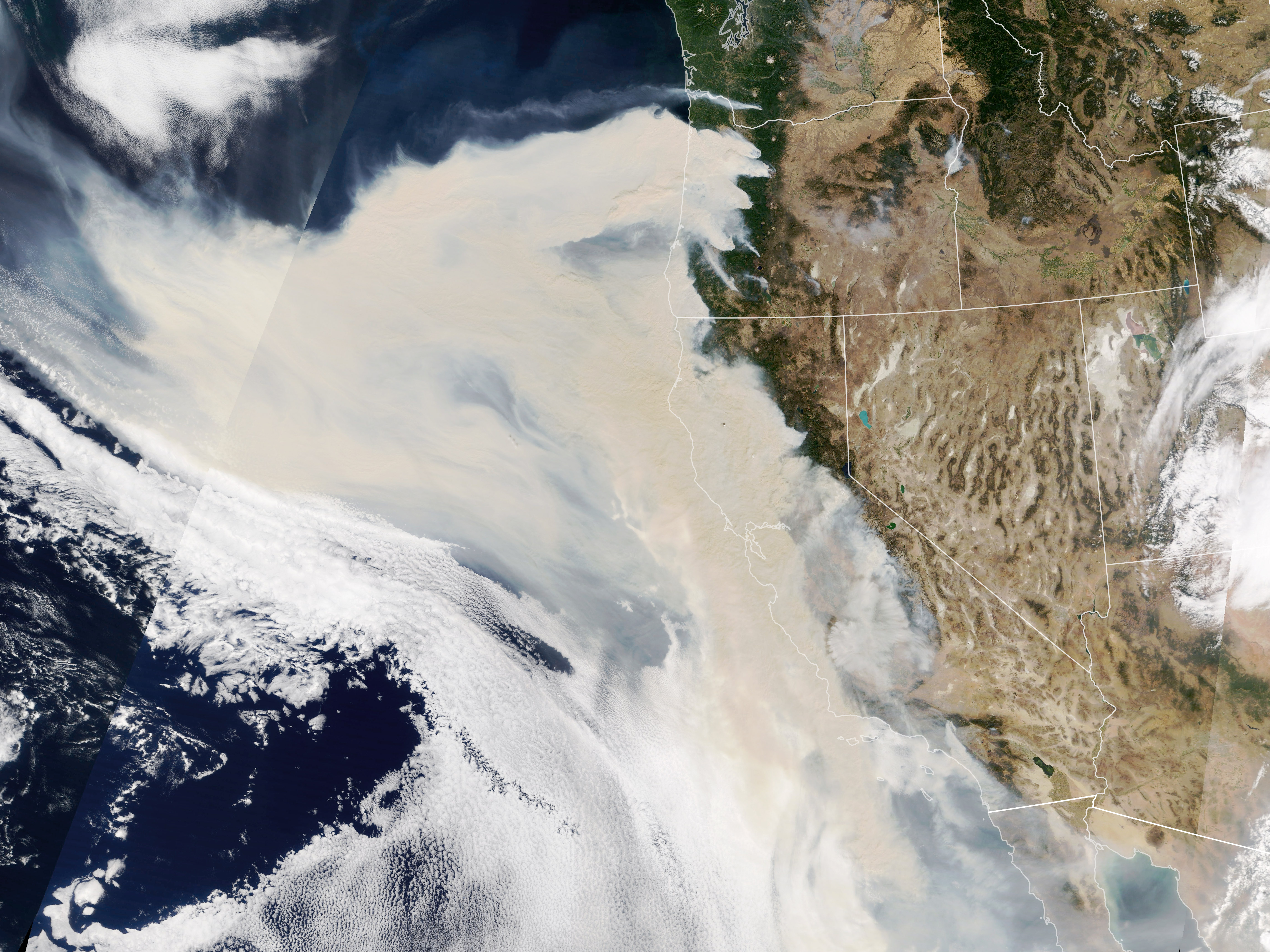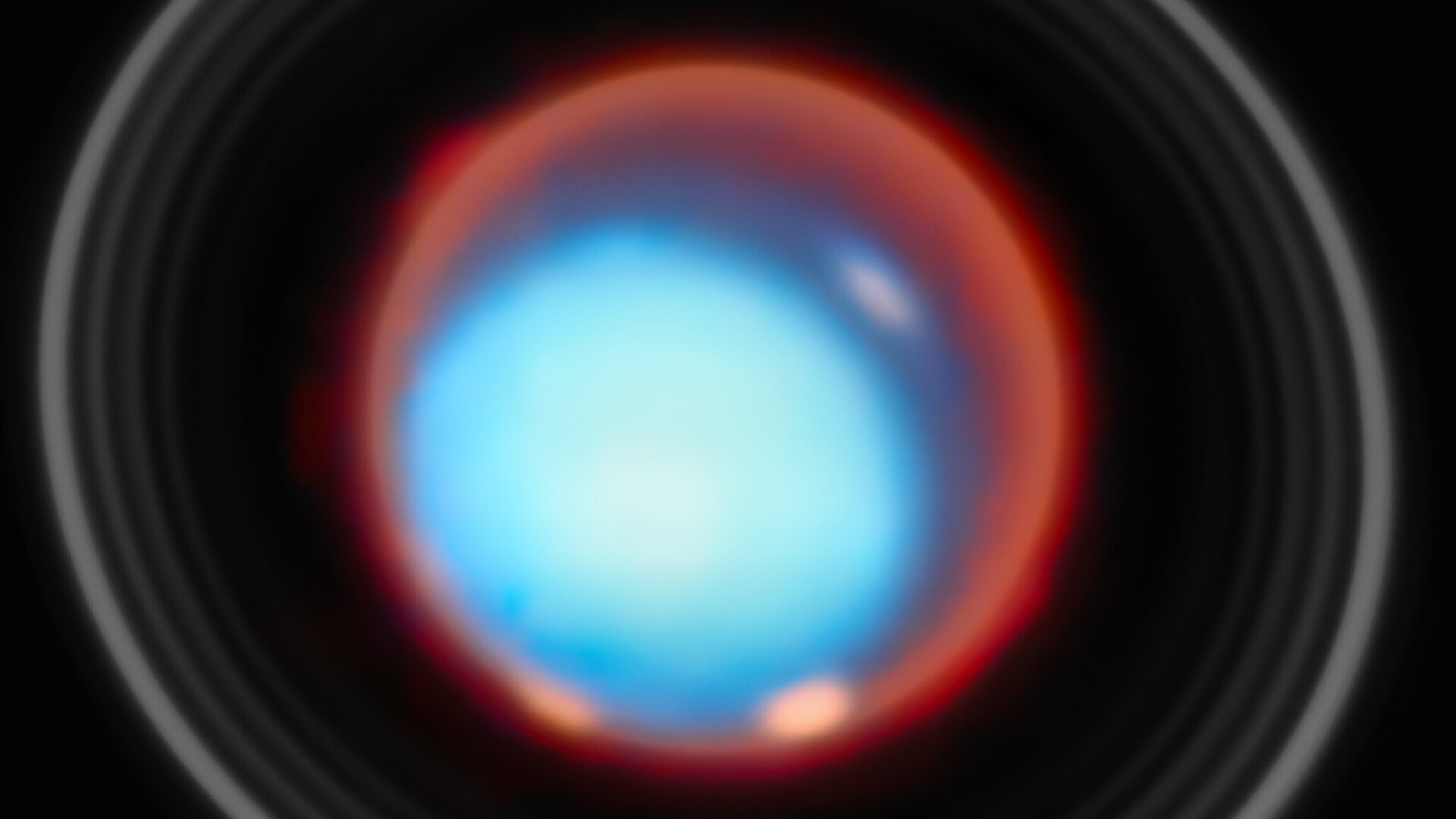The smoke from US West Coast wildfires is visible from nearly 1 million miles away (photo)
Breaking space news, the latest updates on rocket launches, skywatching events and more!
You are now subscribed
Your newsletter sign-up was successful
Want to add more newsletters?

Delivered daily
Daily Newsletter
Breaking space news, the latest updates on rocket launches, skywatching events and more!

Once a month
Watch This Space
Sign up to our monthly entertainment newsletter to keep up with all our coverage of the latest sci-fi and space movies, tv shows, games and books.

Once a week
Night Sky This Week
Discover this week's must-see night sky events, moon phases, and stunning astrophotos. Sign up for our skywatching newsletter and explore the universe with us!

Twice a month
Strange New Words
Space.com's Sci-Fi Reader's Club. Read a sci-fi short story every month and join a virtual community of fellow science fiction fans!
The smoke wafting from the wildfires raging across the Western United States is a wrenching sight, even from nearly a million miles away.
NASA's Earth Polychromatic Imaging Camera (EPIC) captured a dramatic shot of the smoke on Wednesday (Sept. 9), showing a huge gray-brown smudge hovering over the Pacific Ocean just off the West Coast.
EPIC rides aboard the U.S. National Oceanic and Atmospheric Administration's Deep Space Climate Observatory (DSCOVR), which orbits the sun in a gravitationally stable spot 930,000 miles (1.5 million kilometers) from Earth.
Related: Raging California wildfires spotted from space (photos, video)
The smoke is bad over terra firma as well, blanketing much of California, Oregon and Washington state. The extent of the pollution, which has caused hazardous air quality and apocalyptically orange skies across the West Coast, is laid bare in a photo snapped Wednesday by the Moderate Resolution Imaging Spectroradiometer instrument on NASA's Terra satellite.
Such imagery helps convey the scale and ferocity of the current fires, which have killed at least 15 people to date and forced more than 40,000 people in Oregon to evacuate their homes, according to The New York Times.
The blazes are also charring huge tracts of land. For example, 330,000 acres (133,500 hectares) burned in Washington on Monday (Sept. 8) alone, Gov. Jay Inslee tweeted on Tuesday (Sept. 9). That's more than in 12 of the state's 18 most recent entire fire seasons, he said.
Breaking space news, the latest updates on rocket launches, skywatching events and more!
And wildfires have burned more than 3.1 million acres (1.25 million hectares) in California since the beginning of the year, the California Department of Forestry and Fire Protection (CALFIRE) wrote in an update Friday (Sept. 11).
"This year’s acres burned is 26 times higher than the acres burned in 2019 for the same time period, and the combined amount of acres burned is larger than the state of Connecticut," CALFIRE officials wrote.
The raging fires are driven by high temperatures and dry conditions throughout the West. The region is getting hotter and drier thanks to human-caused climate change, so it's no surprise that wildfires there have been getting more extreme and more destructive recently, experts say.
Mike Wall is the author of "Out There" (Grand Central Publishing, 2018; illustrated by Karl Tate), a book about the search for alien life. Follow him on Twitter @michaeldwall. Follow us on Twitter @Spacedotcom or Facebook.

Michael Wall is a Senior Space Writer with Space.com and joined the team in 2010. He primarily covers exoplanets, spaceflight and military space, but has been known to dabble in the space art beat. His book about the search for alien life, "Out There," was published on Nov. 13, 2018. Before becoming a science writer, Michael worked as a herpetologist and wildlife biologist. He has a Ph.D. in evolutionary biology from the University of Sydney, Australia, a bachelor's degree from the University of Arizona, and a graduate certificate in science writing from the University of California, Santa Cruz. To find out what his latest project is, you can follow Michael on Twitter.


